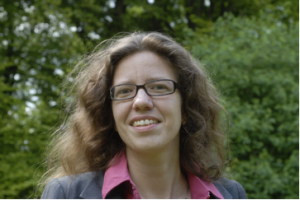“We had so many studies focusing on institutions and on official discourse, and so few studies on the silent majority, which never shows up in these institutions… So we over-emphasize the religious belongings. All the muslims are supposed to know the Qur’an, although they don’t. Some of them have never opened it. Some of them don’t think they are Muslims. – None of us is Christian, Muslim, a Mason, Atheist, 24 hours a day. We have much more belongings, identities.”
 Needless to say, migration and diasporic communities are a politically hot topic. In many European countries the attitudes towards immigration, especially by those representing different cultural or religious backgrounds, have become more critical and in some cases outright hostile. On the other hand, there are those who advocate openness without paying much attention to the challenges increased immigration as well as uninformed immigration policies may cause. The digging of ideological trenches and heated debates seem to highlight the very real need of comprehensive academic study on the realities of migration, immigrant communities, immigration policies and beyond. But how are these to be studied most effectively? One person who definitely has something to say about this topic is professor Monika Salzbrunn. She is currently the leader of the Research Institute for Social Sciences of Contemporary Religions (IRSSCR) and holds a full-time professorship in “Religion, Migration and Diaspora” at Lausanne University, Switzerland. She has been involved in an impressive array of research projects. For example, she was the leader of the French team in the European GEMMA project on policymaking, gender and migration in the 7th framework program of the European Union at Ecole des Hautes Etudes en Sciences Sociales (EHESS). The RSP had a great opportunity to discuss the broad themes of migration and diaspora with professor Salzbrunn at the biennial conference of International Society for the Sociology of Religion in Turku earlier this year. Salzbrunn contributes the final episode to our current theme ‘Religion, Migration and Diaspora’, and tells about the work done at the IRSSCR. She gives an introduction to her current research projects, and also says something about what in her view remains to be done in the future. A point to emphasize, in her view, is that it is important to study the multifaceted everyday life of the ‘silent majority’ to get relevant information on the religious diversity ‘on the streets’: food, entertainment, and especially the religious events and festivities, in which religious and ethnic identities are being constructed and maintained.
Needless to say, migration and diasporic communities are a politically hot topic. In many European countries the attitudes towards immigration, especially by those representing different cultural or religious backgrounds, have become more critical and in some cases outright hostile. On the other hand, there are those who advocate openness without paying much attention to the challenges increased immigration as well as uninformed immigration policies may cause. The digging of ideological trenches and heated debates seem to highlight the very real need of comprehensive academic study on the realities of migration, immigrant communities, immigration policies and beyond. But how are these to be studied most effectively? One person who definitely has something to say about this topic is professor Monika Salzbrunn. She is currently the leader of the Research Institute for Social Sciences of Contemporary Religions (IRSSCR) and holds a full-time professorship in “Religion, Migration and Diaspora” at Lausanne University, Switzerland. She has been involved in an impressive array of research projects. For example, she was the leader of the French team in the European GEMMA project on policymaking, gender and migration in the 7th framework program of the European Union at Ecole des Hautes Etudes en Sciences Sociales (EHESS). The RSP had a great opportunity to discuss the broad themes of migration and diaspora with professor Salzbrunn at the biennial conference of International Society for the Sociology of Religion in Turku earlier this year. Salzbrunn contributes the final episode to our current theme ‘Religion, Migration and Diaspora’, and tells about the work done at the IRSSCR. She gives an introduction to her current research projects, and also says something about what in her view remains to be done in the future. A point to emphasize, in her view, is that it is important to study the multifaceted everyday life of the ‘silent majority’ to get relevant information on the religious diversity ‘on the streets’: food, entertainment, and especially the religious events and festivities, in which religious and ethnic identities are being constructed and maintained.
Podcast: Play in new window | Download | Embed
Subscribe: RSS
You can also download this interview, and subscribe to receive our weekly podcast, on iTunes. If you enjoyed it, please take a moment to rate us. And remember, you can use our Amazon.co.uk or Amazon.com links to support us at no additional cost when buying your Christmas presents etc.
(For those wondering about the noises and chimes on the backround, we also had the honour of having Salzbrunn’s inquisitive daughter take part in the interview. She is already an experienced conferencionista herself. Enjoy!) More information on the research projects steered by Salzbrunn can be found here: L’islam (in)-visible en ville. Expressions matérielles et immatérielles des pratiques de l’islam dans l’espace urbain (pdf-file, in French) Undocumented Mobility (Tunisia – Switzerland) and Digital-Cultural Resources after the ‘Arab Spring’ (on Lausanne University’s website, in English).
The other episodes in this series featured Andrew Dawson on Santo Daime, and D. Mitra Barua on Immigrant Buddhism in the West.








